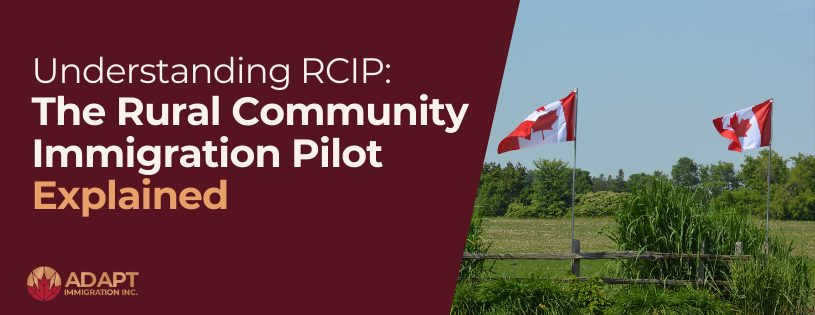Rural Community Immigration Pilot (RCIP) Canada 2025 – New Pathway to Permanent Residency
Canada’s Rural Community Immigration Pilot (RCIP): A New Pathway to Permanent Residency
In early 2025, Immigration, Refugees and Citizenship Canada (IRCC) launched the Rural Community Immigration Pilot (RCIP), a transformative program aimed at addressing labor shortages in Canada’s rural and remote communities. Building upon the success of the previous Rural and Northern Immigration Pilot (RNIP), the RCIP offers skilled foreign workers a direct route to permanent residency while bolstering the economic vitality of participating regions.

What is the RCIP?
The RCIP is a community-driven immigration initiative designed to attract and retain skilled workers in rural areas facing demographic challenges and workforce gaps. Unlike its predecessor, the RCIP emphasizes employer involvement, allowing designated employers in selected communities to recommend candidates for permanent residency.
Participating Communities
As of January 2025, 14 communities across Canada are participating in the RCIP:
Nova Scotia: Pictou County
Ontario: North Bay, Sudbury, Timmins, Sault Ste. Marie, Thunder Bay
Manitoba: Steinbach, Altona/Rhineland, Brandon
Saskatchewan: Moose Jaw
Alberta: Claresholm
British Columbia: West Kootenay, North Okanagan Shuswap, Peace Liard
These communities have demonstrated their capacity to support newcomers through local economic development organizations and employer partnerships.
Eligibility Criteria
To qualify for the RCIP, applicants must:
Job Offer: Secure a full-time, non-seasonal job offer from a designated employer in a participating community.
Work Experience: Possess at least one year (1,560 hours) of relevant work experience within the past three years. Graduates from institutions within the recommending community may be exempt from this requirement.
Language Proficiency: Meet minimum Canadian Language Benchmark (CLB) scores:
TEER 0 or 1: CLB 6
TEER 2 or 3: CLB 5
TEER 4 or 5: CLB 4
Education: Hold a Canadian high school diploma or an equivalent foreign credential.
Settlement Funds: Demonstrate sufficient funds to support themselves and their families upon settlement.
Community Recommendation: Obtain a letter of support from the community’s designated economic development organization.
Intent to Reside: Express a genuine intention to live and work in the recommending community.
Application Process
Secure Employment: Find a job with a designated employer in one of the participating communities.
Community Recommendation: Apply for a recommendation from the community’s economic development organization.
Prepare Documentation: Gather necessary documents, including proof of work experience, education, language proficiency, and settlement funds.
Submit Application: Apply for permanent residency through the IRCC’s online Permanent Residence (PR) Portal.
Priority Sectors and Occupations
Each participating community identifies priority sectors based on local labor market needs. Common sectors include:
Healthcare
Education and Social Services
Manufacturing and Utilities
Sales and Service
Trade and Transport
For instance, Sault Ste. Marie focuses on healthcare and education sectors, while Brandon emphasizes manufacturing and natural sciences.
Recent Updates
Program Launch: The RCIP officially commenced in January 2025, replacing the RNIP.
Community Expansion: Communities like Sault Ste. Marie and Thunder Bay have begun implementing the RCIP, with employer designations and candidate recommendations underway.
Employer-Led Model: The RCIP adopts an employer-driven approach, requiring candidates to obtain job offers from designated employers before applying.
Bottomline
The RCIP represents a significant opportunity for skilled workers seeking permanent residency in Canada. By aligning immigration pathways with local labor market needs, the program fosters economic growth in rural communities while offering newcomers a supportive environment to build their futures.
